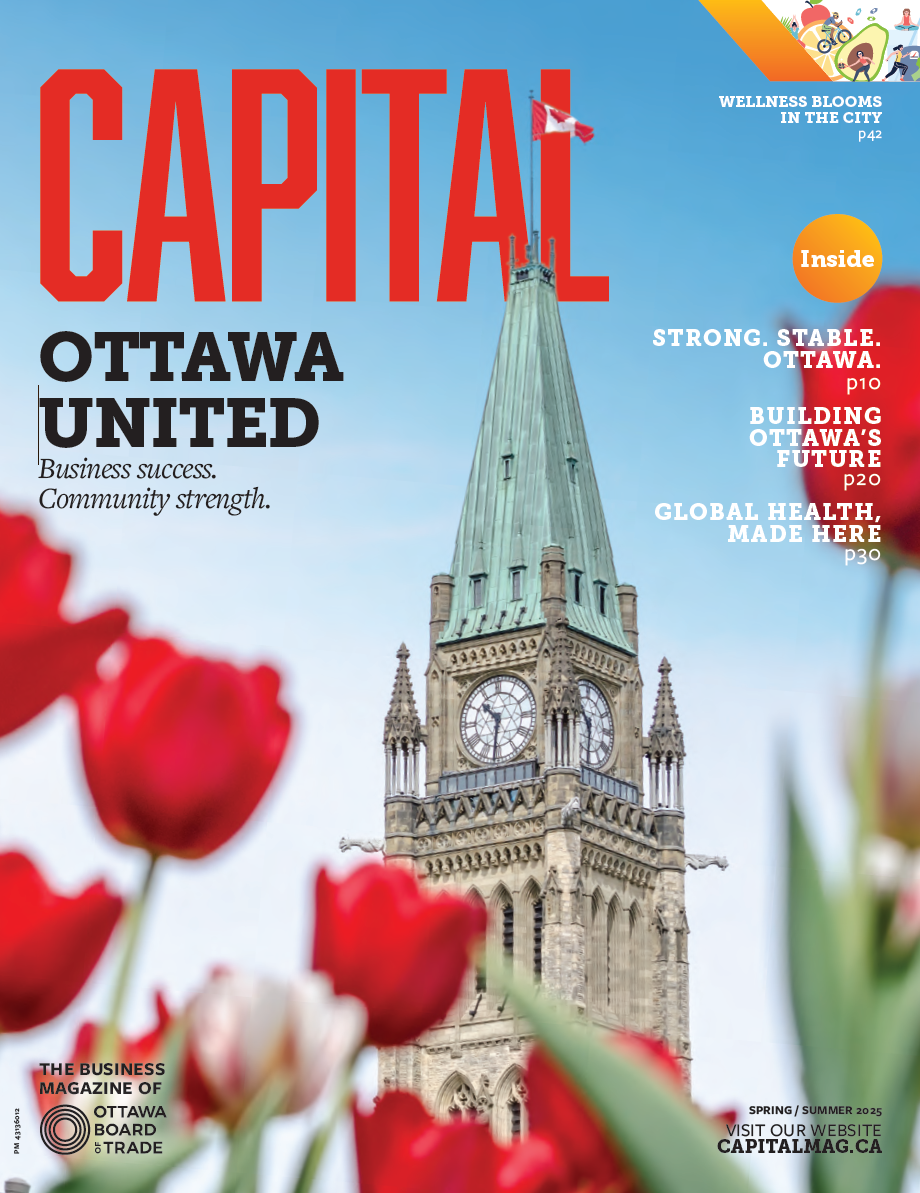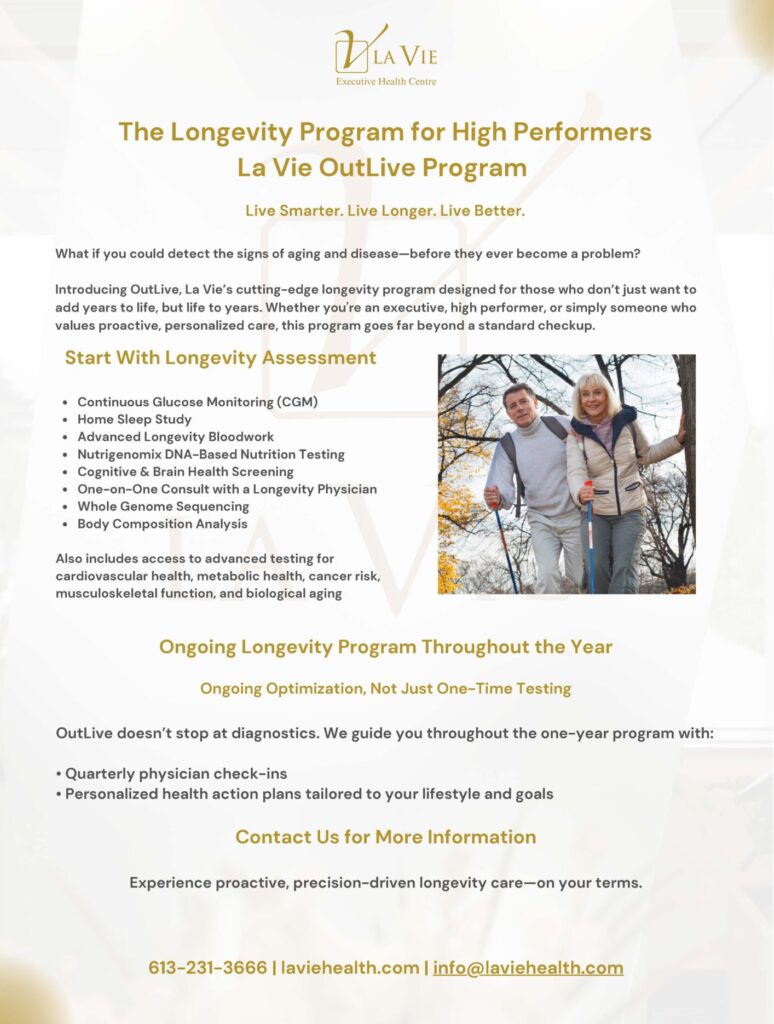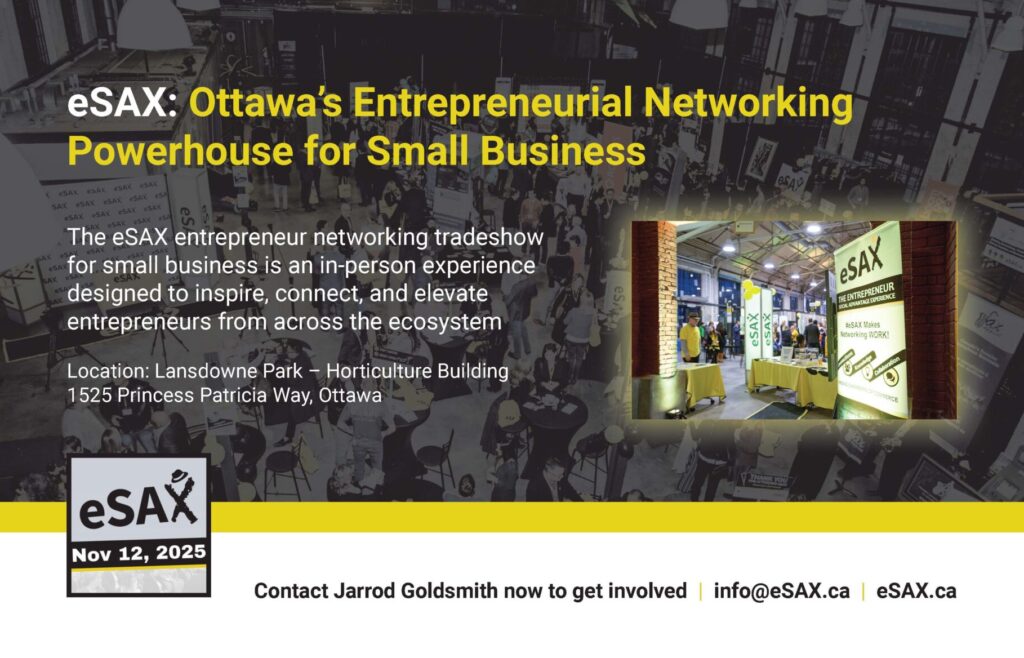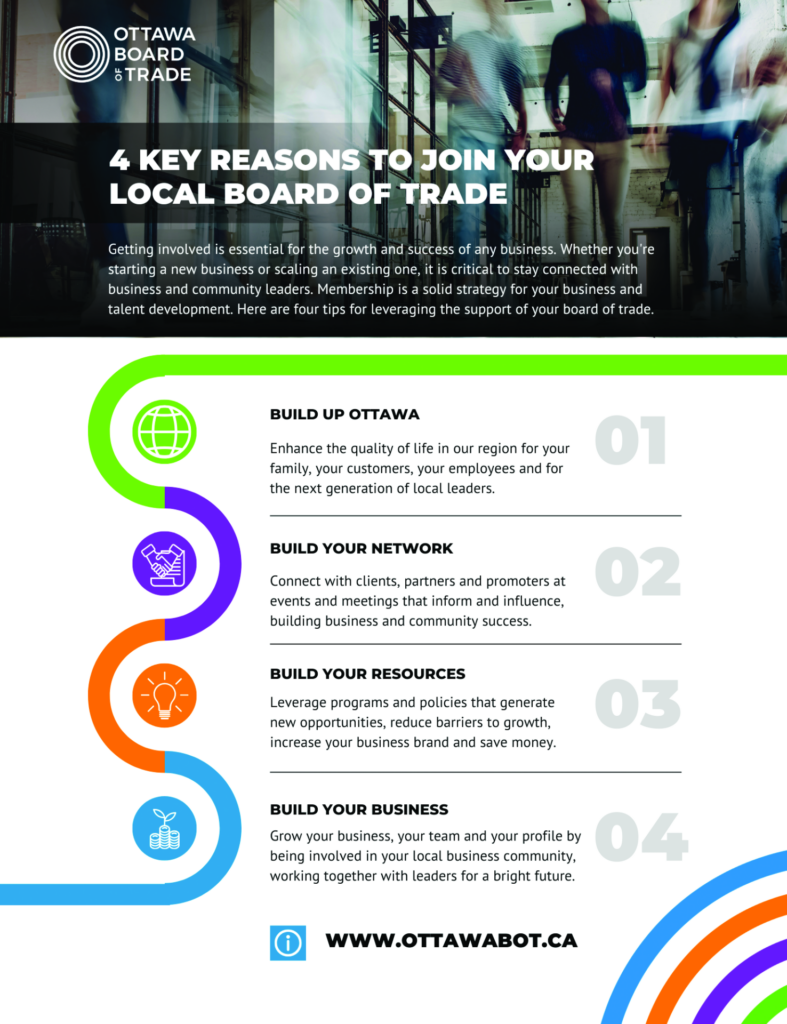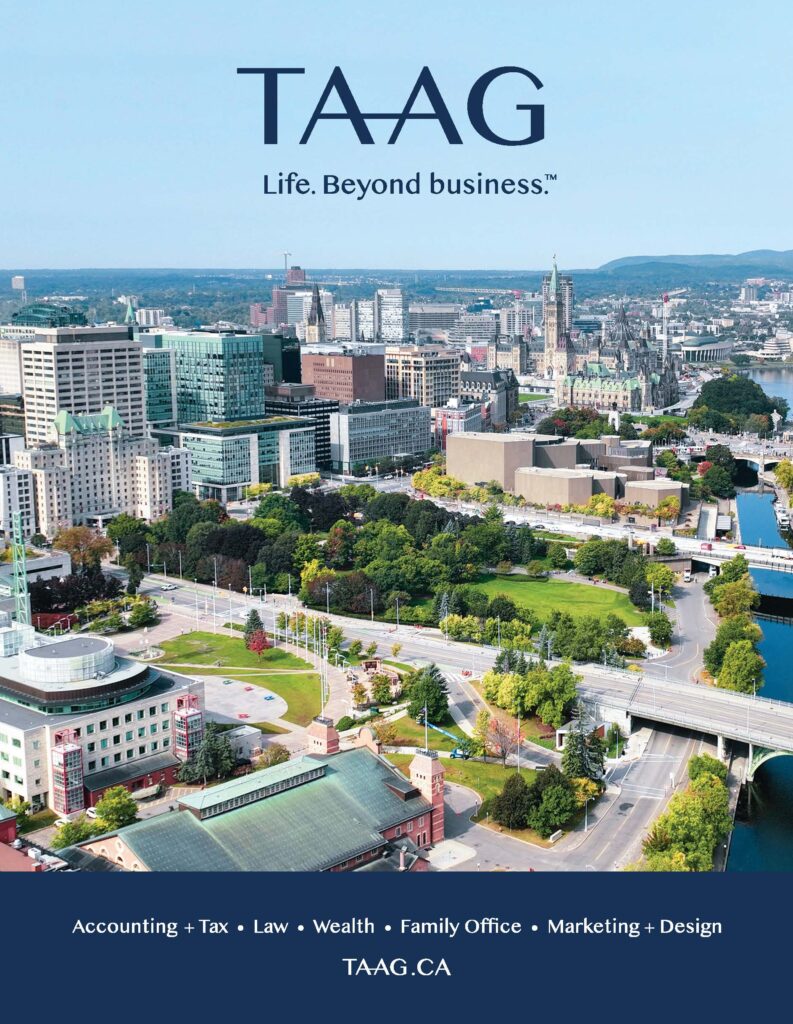The Talent Tipping Point: Ottawa leaders transforming approach to optimize human capital

BY JENNIFER CAMPBELL
TALENT: YEAR AFTER year, it’s identified as the overriding concern and biggest challenge for business owners. The pandemic didn’t help that. But this year’s Ottawa Board of Trade (OBOT) and Ottawa Business Journal (OBJ) Talent Summit tried to do so. What follows are some of the one-day event’s highlights.
The future of work
Steve Harrington, director of Human Capital at Deloitte, started his keynote by saying that employers aren’t competitive enough when it comes to talent. They compete on technology and products, but forget about talent.
“That’s a really difficult place to get to, because the way we’ve constructed human resources is actually about being the same as everyone else,” Harrington said. “Think about the way we write job descriptions, think about the way we do compensation.”
Harrington said we’re currently experiencing what he calls as “a flight to quality” in the employment market. He said it’s important to think about the jobs you’re currently offering as products that you’re putting onto the market.
“Employment-seekers are consumers,” he said. “And they’re looking at that product and they’re deciding if they want it. A lot of the turnover we’re seeing in the market today is consumers rejecting your ‘product’.”
Addressing what we’ve learned through the pandemic, he said “we have never in human history, seen a change in behaviour like we did in the pandemic. All around the world, a certain class of employees went home and worked from there.”
If he’d asked a deputy minister in 2019 whether all employees could work from home, the answer would have been no. In another innovation, CERB rolled out in 16 days though one person he asked said it would otherwise have taken three years.
“The reorganization of work suddenly allowed for dynamic outcomes,” he said. “And that’s really important to remember.”
Addressing the issue of “quiet quitting,” he said a survey found that a third of workers at any given time are disengaged and don’t want to give any more than they absolutely must. The problem from his point of view is that this is being blamed on work-from-home even though as many as 80 per cent of Canadians who worked from home during the pandemic want to continue to work from home the majority of the time. And, he added that Ottawa and Gatineau so far have the highest proportion of workers working from home. Part of that is because Ottawa’s workforce is made up a large number of people who do the type of work that allows them to work from home.
Looking to the future, Harrington says human potential is becoming our greatest untapped asset. He said teams such as his measure people’s drive, their conceptual thinking, their empathy, their social flexibility, many of which are incredibly predictive of future success.
“The theory now is if we do a better job of measuring potential, we can line people up to their strengths, so that… they’re more likely to be successful,” he said.
The other emergency HR-wise is the skills shortage.
“The World Economic Forum released a report to 2021 saying we need to reskill a billion people worldwide by 2030 and 40 per cent of the skills that we use every day at work are going to change in the next two years,” he said. “How can anybody afford to rescale at that scale? We have to think about it fundamentally differently.”
Harrington called for a re-architecturing that starts with the job itself.
“If we want the build work to be the product that the that the employment market wants to buy, more than anything else we have to get out of our HR habit of saying, ‘Let’s be like everyone else’.”
Harrington recommended the HR strategy coming out of the pandemic should be done as an enterprise, considering the work itself, the “how” we do work, the “who” and the “where.” He said accessing talent is about getting the right talent at the right time, from a broad ecosystem of potential talent and then we curating consumer-grade experiences for those people.
Employee engagement tips
The Talent Summit heard from three companies that were recently named among the top 10 places to work in a program run by OBJ and OBOT.
Fellow produces a productivity tool and its mission, according to Sarah Collins, head of customer success at Fellow, is to “make meetings delightful.”
Fellow decided to walk its talk by giving employees the right to contribute to meeting agendas by adding insights and questions, just as the person drafting the agenda does. This shifted the way employees contributed to every conversation and managers then shifted to prioritizing all of the points within that agenda, thereby changing the way they work.
Derek Hanson, president and CEO of The Attain Group, a technology engineering company, said he starts his day by thinking about how he can make a difference in someone else’s life, he treats people the way he wants to be treated and makes his workplace a place he wants to work. That approach seems to be working because after 18 years, Attain has a 97 per cent retention rate.
Sarah Rossman, vice-president of Rossman Architecture, said her company aspires to fulfilling Maslow’s hierarchy of needs. First, it aims to make employees feel as though they belong. It also makes sure it’s fostering self-esteem among employees. At the top of the pyramid is self-actualization and the company aspires to get employees there, too.
“Work is such a big part of our life,” Rossman says.
To help workers meet those needs, the management team prioritizes them, invests in leadership, asks for in-person feedback and ensures it’s consistent in its approach.
Accessing non-traditional resources
Another focus of the Talent Summit was to examine the way how companies can hire either co-op students from one of Ottawa’s many post-secondary institutions, or non-traditional talent resources through organizations such as Performance plus Rehabilitative Care, Sixty Over 60, Treble Victor Group and Hire Immigrants Ottawa.
Cathy McCallion, recruitment strategy and community relations manager at Ross Video, said her company hires 50 co-op students
per year.
“[The student] gains critical applied skills and advances their future career, plus the company they are working for can gauge if they are an appropriate fit for the organization,” McCallion says. “It’s really a win-win socially and economically. If you see a student showing great potential, invite them back for a second, third, or even fourth term, and proactively offer them a role after they graduate.”
To that end, the Hire Local initiative is a consortium of post-secondary educational institutions (Algonquin College, Carleton University, La Cité and the University of Ottawa) who work with OBOT, Invest Ottawa, the City of Ottawa and the Kanata North Business Association. It exists to promote the idea of hiring one of the 10,000 co-op students in the region.
Meanwhile, Talent Summit participants also heard from Henry Akanko, director of Hire Immigrants Ottawa, which is an initiative of United Way Eastern Ontario that focuses on supporting employers to more effectively attract and integrate international trade professionals into the labour market.
“Immigration has, for a long time, been a key driver of our population and labour force growth,” Akanko said. “And this is going to continue to be the case for many, many years to come considering where our demographic trajectory is going.”
Pouria Ghods, president and CEO at Giatec, told his story. He is an immigrant who did a PhD in civil engineering at Carleton University and he’s been hiring immigrants for the past couple of years for his company. In fact, his first 10 employees were immigrants. Then, ironically, he had to tackle the same problem many companies are facing: He needed to add diversity to his team.
Linda Simpson, director of Performance Plus Rehabilitation Care, spoke about her private rehabilitation company, funded by the government of Ontario. She discussed what options employers have in hiring people with disabilities.
“If you look around, there are four of you at the table and at least one person has actually lived disability experience,” Simpson said. “[A full] 22 per cent of Canadians are living with disabilities. If you hire people with disabilities, they’re also going to teach you about disabilities.”
Helen Hirsh Spence, CEO of Top Sixty over Sixty, said chronological age is a terrible predictor of success. Rather, it’s
skill and experience that really makes a difference. Her company offers consulting, thought leadership and training on age diversity and inclusion.
“Ottawa’s senior cohort already comprises Canada’s largest group of post-secondary degrees in the country,” Hirsch Spence said. “So these people are just going to be better educated in the future.”
Joel Watson, member of Treble Victor Group, encouraged employers to consider retired members of the military in their hiring. His group’s mission is to enable ex-military personnel to achieve their full potential in post-service careers. Watson named a number of people who went on to have auspicious post-military careers, including Supreme Court Justice Brian Dickson and Prime Minister Lester B. Pearson.




